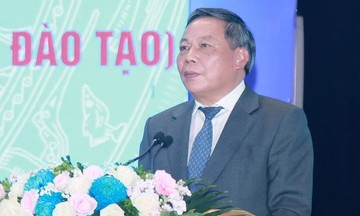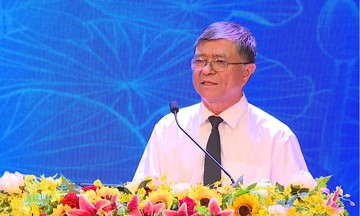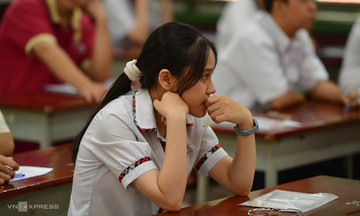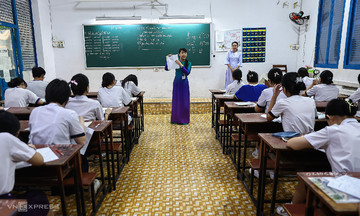Each eligible applicant will receive a 10 million VND scholarship. There is no limit to the number of scholarships available, with a total budget exceeding 100 billion VND. This scholarship is awarded directly to the student upon enrollment at FPTU and is non-transferable. It cannot be combined with other scholarship programs. If an applicant qualifies for multiple scholarships, the university will apply the scholarship with the highest value.
An FPTU representative shared that choosing a university in today's rapidly changing and uncertain world is a challenging decision for both students and parents. Students who know what they want, believe in themselves, and dare to follow their own path have already made a commendable start. The university wants to accompany young people who choose early, choose differently, and proactively write their own future stories with practical knowledge, adaptable thinking, and resilience in the face of change.
"We are committed to creating the best learning environment where students learn authentically, live fully, mature, and build a solid future," the representative emphasized.
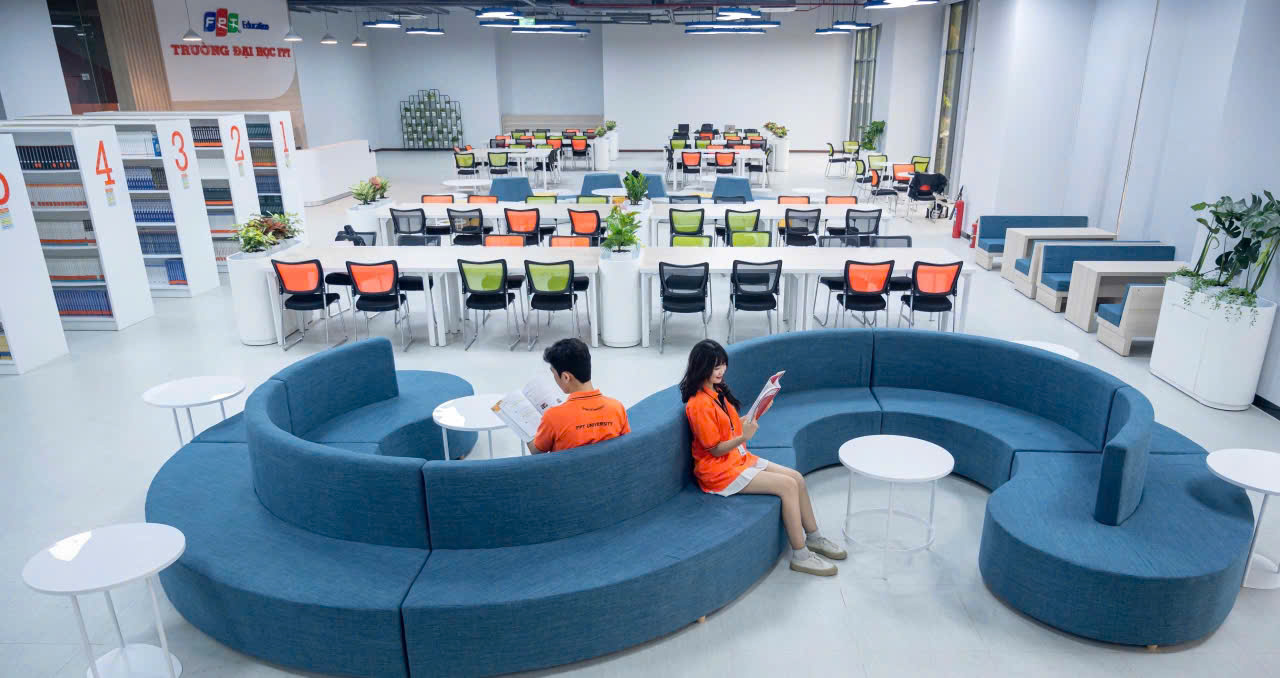 |
FPTU students study in a classroom. Photo: FPTU |
FPTU students study in a classroom. Photo: FPTU
In addition, FPTU also offers several other financial aid options: Scholarships of up to 100% for the entire course for high-achieving students with national or international accomplishments, high scores on competency assessments, and high school graduation exams; STEM scholarships for women pursuing technology; Regional tuition discounts for students studying in Can Tho, Da Nang, and Quy Nhon; and a "Study First - Pay Later" program that allows students to enroll without paying tuition upfront, instead paying gradually after graduation and securing employment.
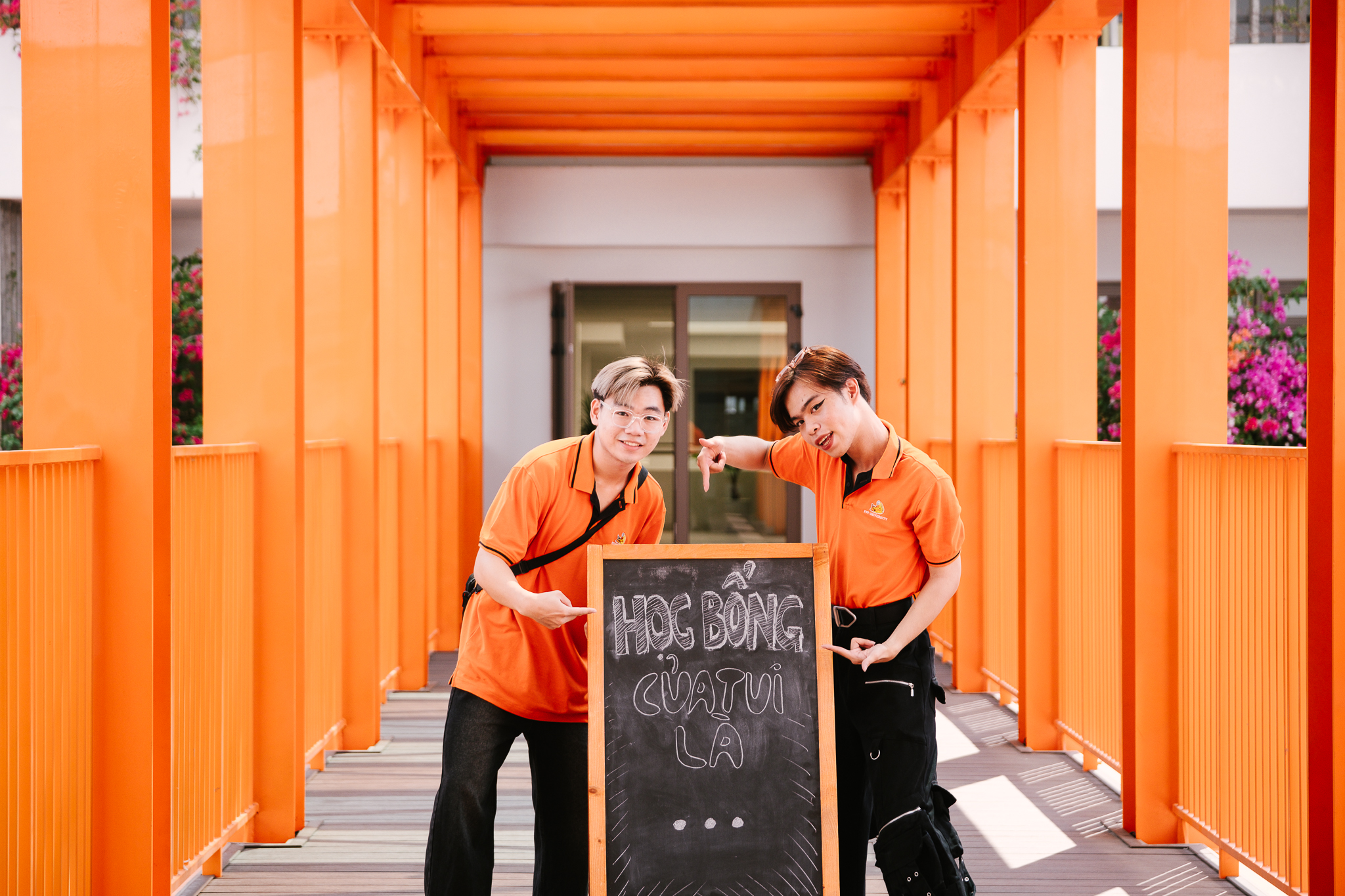 |
FPTU offers a range of scholarships, empowering young people to pursue their dreams. Photo: FPTU |
FPTU offers a range of scholarships, empowering young people to pursue their dreams. Photo: FPTU
Through its scholarship program, FPTU hopes to provide young people with learning opportunities and a high-quality education. With a constantly updated curriculum, FPTU aims to help students keep up with new career trends and become trendsetters. The study path comprises 4 stages: Foundation (Learning mindset, soft skills, English, and AI); Core subjects (Specialized knowledge + second foreign language); On-the-job training (Working as an intern at a company); Specialization and graduation project (Working in interdisciplinary teams, practicing entrepreneurship, and completing a graduation project).
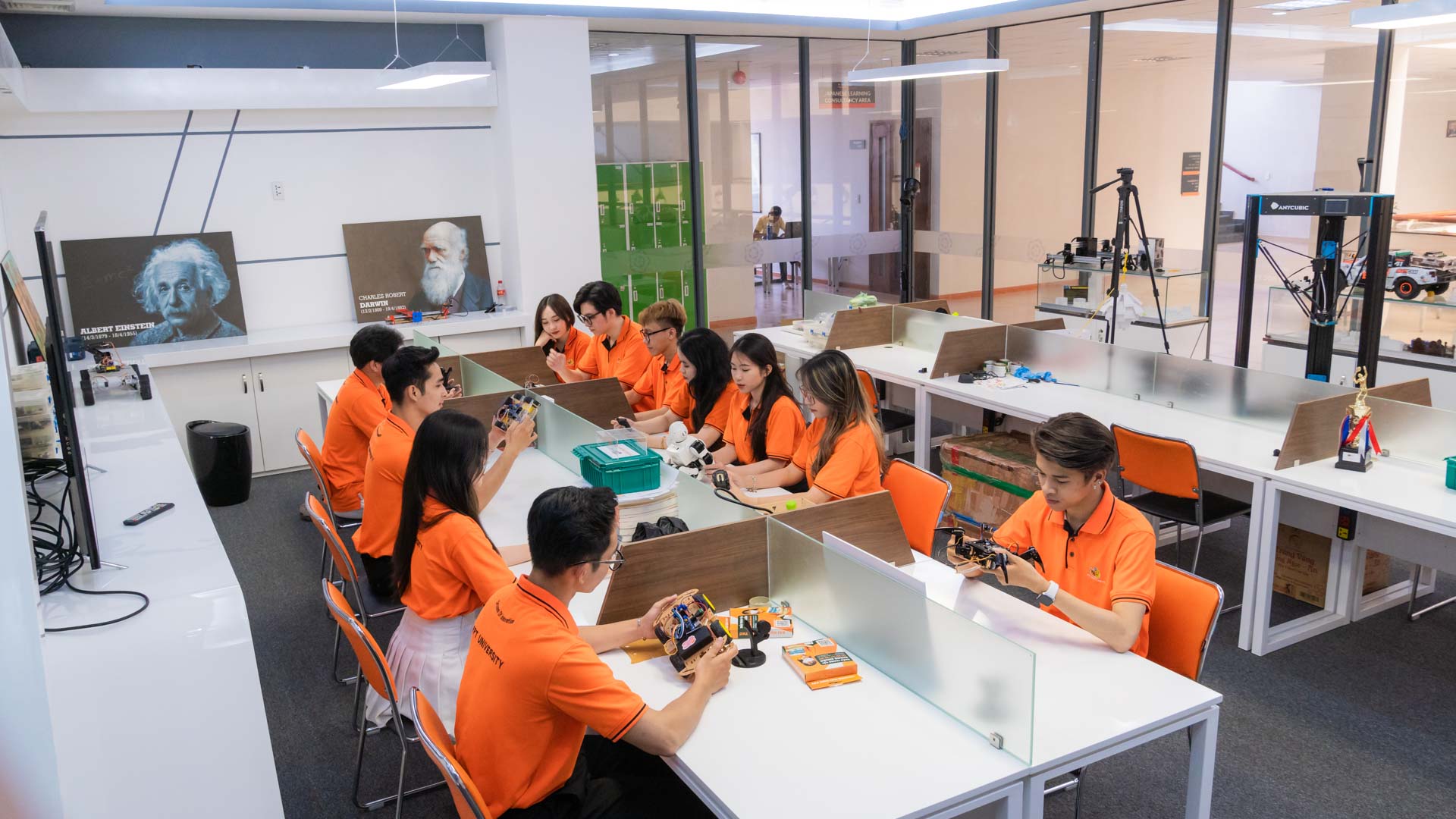 |
FPTU emphasizes practical training during the study process. Photo: FPTU |
FPTU emphasizes practical training during the study process. Photo: FPTU
This year, FPTU is admitting students to 24 majors in Information Technology, Business Administration, Communication Technology, Languages, and Law, with an "AI First" philosophy, integrating artificial intelligence into the entire curriculum. Students are equipped with specialized knowledge, digital literacy, soft skills, and a global mindset from their first year.
Admission codes and corresponding major codes include:
Information Technology (7480201): Information Security, Digital Automotive Technology, Software Engineering, Digital Transformation, Digital Art Design, Semiconductor Chip Design, Artificial Intelligence.
Business Administration (7340101): Financial Technology (Fintech), Digital Marketing, International Business, Logistics and Global Supply Chain Management, Hotel Management, Tourism & Travel Services Management, Corporate Finance, Digital Banking - Finance, Investment Finance.
Communication Technology (7320106): Public Relations, Multimedia Communication.
Languages: English (7220201), Chinese - English (7220204), Korean - English (7220210), Japanese - English (7220209).
Law (7380101): Economic Law, International Trade Law.
In 2025, FPT University ranked 80th globally for Good Jobs and Economic Growth (SDG8), top 101–200 for Quality Education (SDG4), and top 301-400 among the world's most sustainable universities according to THE Impact Rankings. The university's graduate employment rate is 98%, with 19% working in developed countries such as Japan, Germany, the US, and Australia.
Nhat Le



